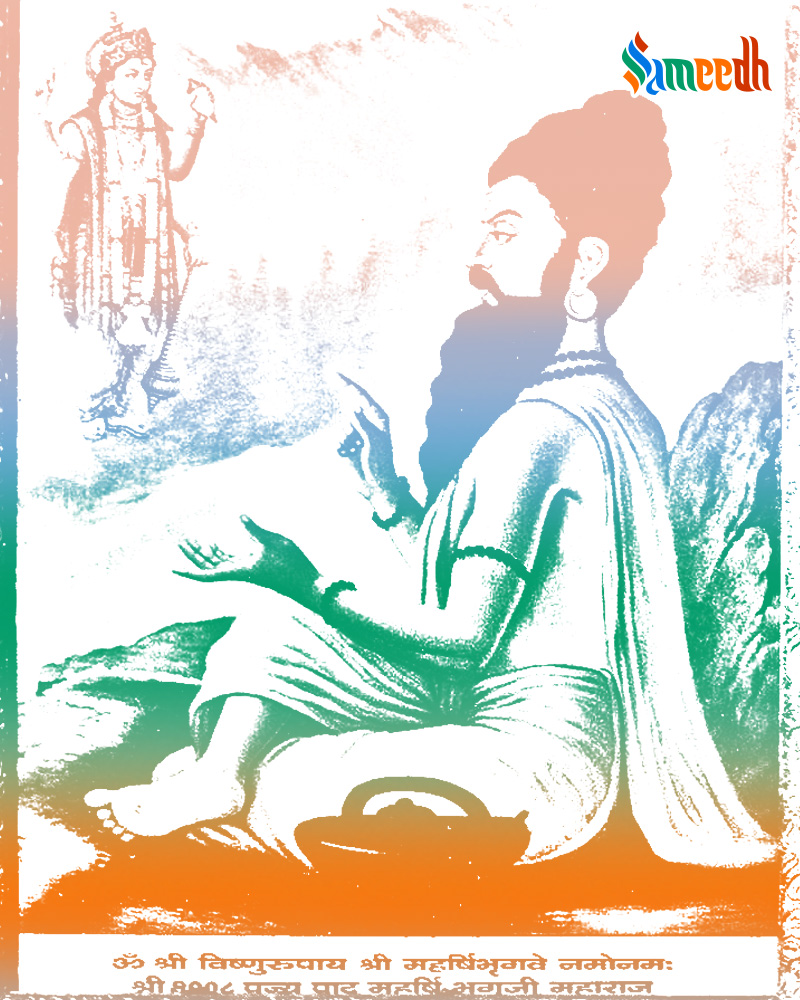Bhrigu is one of the saptarishi scholars who is known as the father of Goddess Lakshmi. He is also known as the pioneer of predictive astrology that we all practise today.
‘Sapta’ means seven, and ‘Rishi’ means a sage or seer in Sanskrit hence, Saptarishi literally means ‘seven seers’. Saptarishi are the Brahmarishi or scholars who wrote the scientific Indian scriptures such as Ved, Puran, and Upanishad. They created and updated them from time to time. The legends say, Brahma created a series of scholars as ‘Manas Putra’ to impart wisdom and education to human beings.

Image by: Shrimati Satish Janardhan Sharma and Dr. Pandit Ramanuj Sharma
Rishi Bhrigu is one of the noted scholars from the Saptarishi. He is considered to be one of the mind-born sons of Brahma – Manasputra. Also, there are numerous tales about the origin of Rishi Bhrigu. He got married to Khyati – the daughter of King Daksha. Together, they had a daughter ‘Lakshmi’ who later got married to Bhagwan Vishnu. That’s why Lakshmi is also known as Bhargavi.
Rishi Bhrigu is believed to be the ancestor of Rishi Jamadagni and Bhagwan Parshuram – as Rishi Bhrigu’s son Rishi Chyavan and his wife Mata Arusi were parents to Rishi Richik – the father of Rishi Jamadagni. Also, Rishi Bhrigu was the father of Shukracharya – the chief teacher/ guru of the Asur clan.
Rishi Bhrigu did a great tapasya to understand the reality of life and all existence. Through a process of self-control and self-enquiry – he managed to unfold the stages of brahman. As per his experience – Food, Life Force, Mind, Intelligence, and Bliss – are the five stages of brahman perception.
Rishi Bhrigu’s life journey has numerous landmark places, which can be spotted today in Haryana, Punjab, Rajasthan, Gujarat, and Maharashtra.
Rishi Bhrigu was the author of Bhrigu Samhita – which is believed to be the foundation of predictive astrology that is practised today. He is also believed to be a contributor to Manusmriti. His name has been mentioned in numerous ancient Indian scriptures – including Shiv Puran, Vayu Puran, Skanda Puran, Tattiriya Upanishad, and Bhagavad Gita.